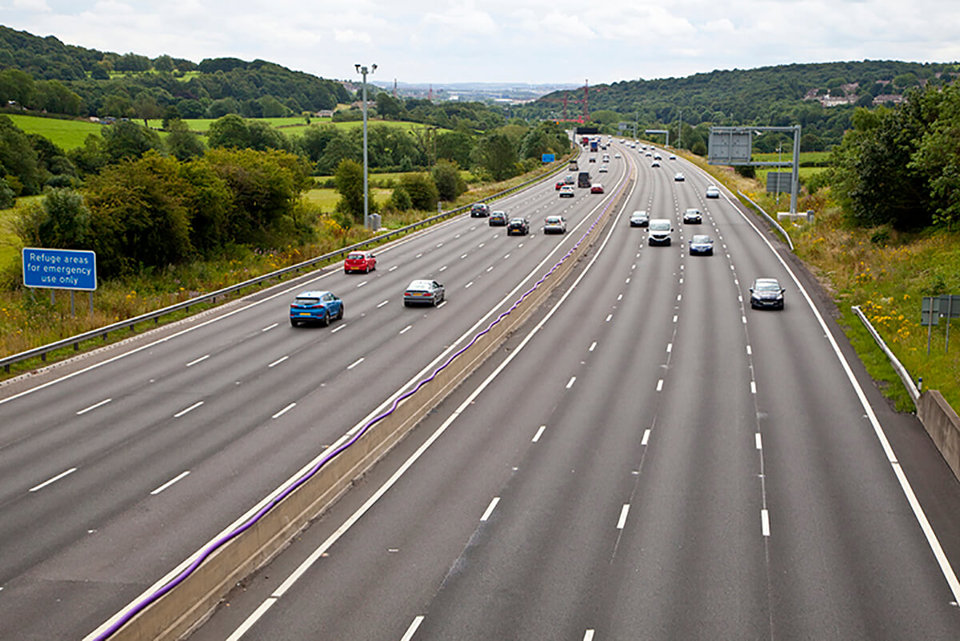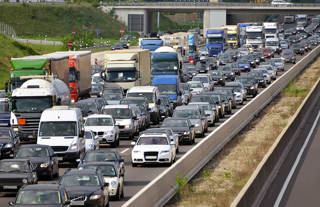Road tolls, clean air zones (CAZs) and a scrappage scheme could be employed by the Welsh Government to improve air quality.
Launching a 12-week consultation on its Clean Air Plan for Wales, the Welsh Government says that it is committed to promoting the transition to ultra-low emission vehicles (ULEVs).
It said it was working on a proposal for all new cars and light goods vehicles (LGVs) in public sector fleets to be ultra-low emission by 2025 and where practicably possible, all heavy goods to be ultra-low emission by 2030.
Furthermore, it said it was considering potential access restrictions for certain vehicles in urban areas, introducing toll roads and reviewing the feasibility of a scrappage scheme with credits for public transport.
A review of the effectiveness of anti-idling legislation to protect those most vulnerable from harmful transport emissions will also be carried out.
Public Health Wales estimates air pollution has contributed to up to 1,400 deaths in 2017.
Lesley Griffiths, minister for environment, energy and rural affairs at the Welsh Government, said: “Everyone in Wales should be able to breathe healthy air, access healthy and protected natural resources and enjoy sustainable and clean economic growth.
“The Clean Air Plan for Wales: Healthy Air, Healthy Wales provides a national framework within which all areas of society can work together towards these objectives.”
The plan brings together work across government and the public sector. It consolidates progress already made and proposes a range of new actions and commitments. These include funding new infrastructure, tightening existing regulations and acting as a stepping stone to a new Clean Air Act for Wales.
It also includes ambitions to meet and, where possible, exceed requirements set out in UK and international guidance and legislation. Furthermore, it commits the Welsh Government to publish a white paper this Assembly term on a Clean Air Act for Wales.
Griffiths said: “We have made good progress but we must continue to improve. We must improve air quality, not just in the most polluted hotspots, but across all of Wales.”
The 12-week consultation seeks views on existing commitments and proposed new actions in the plan including: increasing air quality monitoring outside areas such as schools and hospitals to protect those most vulnerable from transport emissions; reviewing powers local authorities have to tackle emissions from the indoor burning of solid fuels such as wood and coal; and assessing the contribution bonfires and fireworks make to levels of harmful emissions.
However, it is the Welsh Government’s announcement it is investigating measures aimed at reducing vehicle use such as road pricing that will be of most interest to fleet operators.
The House of Commons Transport Committee recently announced it intends to launch a formal inquiry into road pricing next year.
It said it wants to start a national debate about road pricing – something that has been lacking for more than a decade since the then Labour Government’s road pricing plans were abandoned.
Road pricing is seen as a potential replacement for dwindling fuel duty revenues. They are down by £19 billion since 2000 and the £40bn annual income from fuel duty and Vehicle Excise Duty (VED) is likely to decline sharply in the future, and may end entirely if the UK Government keeps its pledge to fully decarbonise road transport within two decades.
The Institute for Fiscal Studies (IFS) has also said that the UK Government needs to design new taxes which can gradually replace fuel duties.
The consultation on the Welsh Government’s plans will close on March 10, 2020.






















Login to comment
Comments
No comments have been made yet.